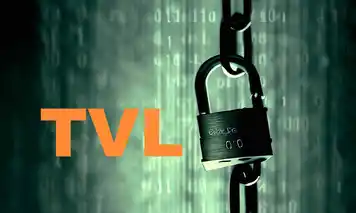As the world embraces a digital future, decentralized blockchain and Web3 technologies are poised to play a crucial role in shaping various industries and societal institutions. The current landscape of cryptocurrencies and decentralized applications is just the beginning of a transformative era that could span the next three decades. With advancements in artificial intelligence, quantum computing, and internet infrastructure, we can expect a wave of decentralized innovation that will redefine the way we interact, transact, and govern.
The Evolution of Blockchain
Blockchain, the technology underpinning cryptocurrencies like bitcoin, has evolved significantly since its inception over a decade ago. Initially designed as a transparent system for recording financial transactions, blockchain has now expanded into a versatile platform capable of supporting a wide range of applications. From supply chain management and decentralized finance (DeFi) to digital identity and voting systems, blockchain has the potential to revolutionize traditional solutions in both business and personal contexts.
The Rise of Web3
Web3 represents a paradigm shift from the centralized architecture of the web to a decentralized, user-centric experience. By leveraging blockchain and other decentralized technologies, Web3 empowers users to control their own data, interact directly with applications, and participate in governance through decentralized autonomous organizations (DAOs). This new era of internet development promises to reshape the way we engage with online services and communities.
Potential Trajectories and Use Cases
- Decentralized Identity Web3 will facilitate the emergence of decentralized identity systems, simplifying personal data validation and eliminating the need for intermediary services. Users will no longer need to create multiple accounts for different providers; instead, they can connect a universal profile or cryptocurrency wallet containing tokens that verify their participation in events or qualifications for jobs. This streamlined approach to identity management will enhance user privacy and control.
- Evolving Business Models The Web3 era will usher in a fairer creator economy, enabling individuals to retain ownership of their content and earn higher incomes. Decentralized services will offer alternative models of audience engagement, reducing the influence of centralized tech giants in the content creation process. This shift will empower creators and foster a more equitable digital ecosystem.
- Democratization of Finance Tokenization of assets will continue to gain traction, with various financial instruments and physical assets being digitized. The development of blockchain technologies will simplify retail investors' access to non-public assets by tokenizing shares of private companies. This democratization of finance will lower entry barriers and create new opportunities for individuals to participate in high-growth investments.
- Reputation Systems The development of reputation institutions will accelerate in the Web3 economy. Decentralized systems will form and control user reputation based on their activities, optimizing human behavioral patterns on the internet and improving the quality of online information. These reputation systems will serve as essential elements within the Web3 ecosystem, fostering trust and accountability.
Impact on Industries
Financial Industry
Blockchain will transform the global financial system by reducing the role of intermediaries, lowering costs, and increasing the speed of transactions. Decentralized finance (DeFi) projects will take over traditional banking services, while digital national currencies (CBDCs) will monopolize the payment function of banks. Smart contracts will automate business processes, enhancing transparency and improving macroeconomic assessments.
Socio-Economic Sphere
Blockchain technology will improve public administration processes, such as voting, making them more democratic and reliable. In the socio-economic sphere, blockchain will streamline government support measures, simplifying access to public services and financial assistance for various segments of the population.
Decentralization of the Global Economy
The advent of blockchain and distributed ledgers will shift the centralized world economy towards decentralization. Alternative financial systems based on decentralized principles may emerge, challenging the dominance of reserve currencies and existing economic linkages. International trade, logistics, and currency markets will be transformed, enabling more robust, reliable, and transparent forms of interaction between nations and economies.
Real Economy
Businesses, entrepreneurs, and companies in the real sector will benefit from the adoption of blockchain through cost reduction and process optimization. From quality control and logistics to enterprise accounting and financing, blockchain technology will simplify complex bureaucratic processes, fostering efficiency and growth.
The Evolution of the Internet
Web3 Blockchain will play a pivotal role in the evolution of the internet towards the Web3 concept. In contrast to the current centralized model, Web3 will empower users with ownership and control over their data and information. Cybersecurity will be enhanced through advanced hashing technologies, reducing the risk of data theft and manipulation.
Tokenization of Assets
Blockchain will revolutionize financial markets through the tokenization of assets. The digitization of stocks, commodities, and other tradable assets will improve accessibility, reduce trading costs, and enhance transparency. New digital exchanges will emerge, facilitating the trading of various tokenized assets and automating settlement processes. This transformation will also simplify fundraising for businesses, as the tokenization of company shares or bonds on digital exchanges will make it easier for small and medium-sized enterprises to access capital.
Conclusion
The prospects for the application and implementation of blockchain technologies in everyday life are vast and promising. While some may view these solutions as unnecessary complications, it is essential to recognize that similar skepticism was once directed towards online businesses, which have now become ubiquitous.
The integration of blockchain-based solutions into bureaucratic infrastructure, government databases, and various sectors such as insurance and lending, can significantly reduce processing times and enhance data protection. Even if these solutions are initially organized on private blockchains with a higher level of centralization, the judicious use of cryptographic solutions will improve security and efficiency.
In the realm of entertainment and social networks, decentralized solutions are likely to be adopted more rapidly, appealing to the youth segment and offering greater freedom from the limitations inherent in large state and corporate structures. While attempts to restrict decentralization may persist, enthusiasts will undoubtedly find ways to circumvent them, as the pursuit of true decentralization is a fundamental aspect of the Web3 sphere.
As we navigate the next 30 years, it is crucial to approach the integration of blockchain and Web3 technologies with an open mind, recognizing their potential to reshape industries, empower individuals, and foster innovation on a global scale. By embracing decentralization and the opportunities it presents, we can pave the way for a more equitable, transparent, and resilient future.







